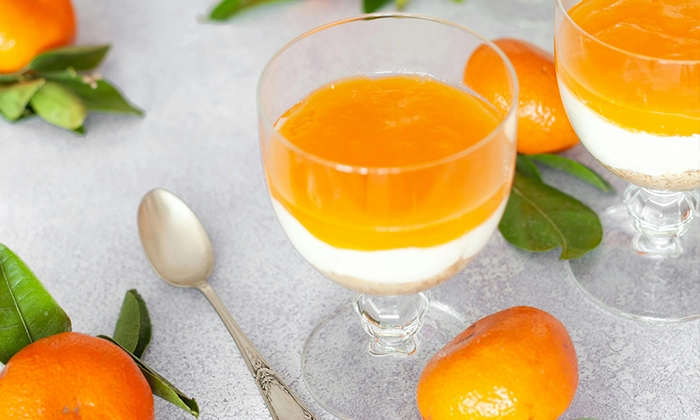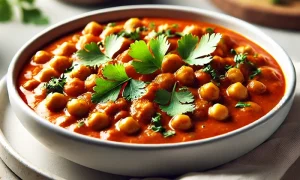What is Agar Agar? And How to Use it In Vegan Diets

Navigating a vegan diet often means finding alternatives to common animal-based products. Agar agar, a plant-based powerhouse derived from red algae, is a great gelatin substitute with many uses. This versatile ingredient is a game-changer for those seeking a cruelty-free substitute for gelatin-based recipes. With its gelling, thickening, and stabilizing properties, agar agar opens up a world of culinary possibilities.
Unlike traditional gelatin made from animal collagen, agar agar is completely vegan, making it perfect for creating everything from jellies to vegan cheeses. Its odorless and tasteless nature ensures it won’t alter the flavor of your dishes, allowing you to explore both sweet and savory recipes. Plus, with its high fiber content and essential minerals, agar agar not only enhances your meals but also supports your nutritional needs.
As more people embrace plant-based lifestyles, agar agar’s popularity continues to rise. Discover how this seaweed-derived ingredient can transform your vegan culinary adventures.
Key Takeaways
- Vegan Gelatin Substitute: Agar agar is a plant-based alternative to gelatin, derived from red algae, making it ideal for those following vegan diets who need gelling and thickening properties without animal products.
- Nutritional Benefits: Packed with fiber and essential minerals, agar agar supports digestive health, weight management, and potential blood sugar regulation, making it a nutritious addition to vegan meals.
- Culinary Versatility: Being odorless and tasteless, agar agar can be used in a variety of recipes, from desserts like jellies and puddings to savory dishes like soups and vegan cheeses, without altering their flavors.
- Easy to Use: Available in various forms like powder or flakes, agar agar is simple to incorporate into recipes. Its powdered form is particularly user-friendly, requiring precise measurements for gelling.
- Safe Use Considerations: While safe for most, excessive consumption of agar agar may cause digestive upset. Proper preparation and adequate hydration can help avoid any side effects.
Where to Buy Agar Agar
Agar agar is available at a variety of retail locations in the U.S. To find it in its powdered or flake form, visit local health food stores, which often cater to vegan and specialty diets. Asian grocery stores also stock agar agar, reflecting its traditional use in Asian cuisine. If you prefer shopping online, numerous retailers offer agar agar through platforms like Amazon, enabling convenient delivery to your doorstep. These options ensure you have access to this versatile plant-based gelling agent for all your vegan cooking needs.

Buy Now
What Is Agar Agar?
Agar agar, often called just agar, is a gelatinous substance derived from red algae, a type of seaweed. It’s been a staple in Asian cuisine for generations and is gaining popularity among those seeking plant-based alternatives. Known for its gelling, thickening, and stabilizing properties, agar serves as an excellent substitute for gelatin in vegan diets. Red algae are collected and cleaned, then boiled to extract agar, which is processed into various forms: powder, flakes, bars, and strands.
The powder form of agar is the most common due to its ease of measurement and rapid dissolution in liquid. Unlike gelatin, agar dissolves in boiling water, requiring specific preparation steps to activate its gelling properties. This process involves dissolving the powder in boiling liquid, simmering the mixture, and allowing it to cool and set. Odorless, colorless, and tasteless, agar doesn’t alter the flavors of the dishes in which it’s used, making it versatile for both sweet and savory recipes.
This plant-based gelatin substitute is identified as E406 on food labels, emphasizing its role as a food additive in the thickener category. With its ability to form a gel by absorbing water, agar is valuable not only for vegan desserts but also for savory applications like vegan cheeses. As more people embrace plant-based diets, agar’s adaptability continues to enhance vegan culinary experiences.
Nutrition and Health Benefits
Agar agar offers several health advantages due to its nutritional composition. With its high fiber content and essential minerals, it complements vegan diets effectively.
Promotes Digestive Health
Dietary fiber in agar agar enhances digestive health by supporting regular bowel movements. This fiber source can alleviate constipation by adding bulk to the stool. Additionally, agar agar acts as a prebiotic, feeding beneficial gut bacteria and improving overall gut health.
Supports Weight Management
You can maintain healthy body weight with agar agar, which contains negligible calories and aids in satiety. Consuming fiber-rich foods like agar agar can curb overeating by creating a feeling of fullness. As a result, it can become a valuable tool in managing weight efficiently.
Potential to Regulate Blood Sugar
Agar agar may help regulate blood sugar levels by slowing glucose absorption in the bloodstream. This gel-forming property of agar can prevent spikes in blood sugar after meals. For individuals with diabetes or those looking to stabilize blood sugar levels, incorporating agar agar could offer potential benefits.
Agar Agar vs. Gelatin
Agar agar and gelatin differ primarily in their origins and properties. Gelatin comes from animal collagen—extracted from the cartilage, bones, skin, and tendons of livestock like cows and pigs—making it unsuitable for vegetarians and vegans. In contrast, agar agar is a plant-based alternative derived from red algae, offering a vegan-friendly option for culinary applications.
The setting process also sets these two agents apart. Agar agar needs to boil to activate and set, as it melts at 185°F, while gelatin dissolves in warm water and melts at 95°F. Dishes made with agar agar have a firmer texture and do not require refrigeration, unlike gelatin-based recipes, which are creamy and need cooler temperatures to maintain stability.
In recipes, agar agar can effectively replace gelatin but produces a slightly different texture. For instance, agar gel sets more firmly and can withstand higher temperatures, making it ideal for vegan jellies, puddings, and custards. Meanwhile, gelatin yields a soft, jiggly consistency, suitable for items like panna cotta or cream-based desserts. For vegan cooks seeking versatility, agar agar is an excellent choice, meeting dietary preferences without compromising texture and integrity.
Types and Forms of Agar Agar
Agar agar, derived from red algae, comes in several forms to suit various culinary needs in vegan diets. Each form has specific characteristics and applications.
Powdered Agar
Powdered agar stands out as the most user-friendly form. It’s colorless, odorless, and dissolves quickly, making it ideal for precise measurements in recipes. Use one teaspoon of agar powder to thicken one cup (240ml) of liquid. Incorporate the powder into liquids by dissolving it in boiling water, ensuring your recipes create flawless gels or thicken sauces without altering flavors.
Agar Flakes
Agar flakes require a bit more preparation than the powdered form. They consist of dried and crushed gel, often derived from agar strands or bars. Flakes take longer to dissolve, so consider grinding them into a finer powder to speed up the process. Typically, one tablespoon of flakes is needed per cup of liquid. Use these in recipes that benefit from a slightly thicker consistency by soaking them, then boiling until fully dissolved.
How to Use Agar Agar in Vegan Recipes
Agar agar is a versatile ingredient perfect for vegan cooking. By using its gelling and thickening properties, you can create a range of plant-based dishes without altering their flavors. Follow these guidelines to incorporate agar agar effectively into your vegan recipes.
- Gelling Desserts: Use agar powder to make vegan versions of gelatin-based desserts like jellies, puddings, and panna cotta. Substitute gelatin with an equal ratio of agar powder, mixing it with liquid, and heat the mixture until it fully dissolves.
- Thickening Soups: Incorporate agar powder to thicken soups and stews for a smooth, rich consistency. Dissolve agar in boiling broth and stir until it dissolves completely, then add it to your dish.
- Creating Vegan Cheeses: Use agar to create sliceable vegan cheeses. Combine agar with plant-based milk and flavorings, then heat the mixture to activate the agar. Pour into molds and chill until set.
- Stabilizing Sauces: Incorporate agar for sauces that need stability. Dissolve agar in the sauce mix during heating to maintain the desired thickness without affecting the flavor.
Utilizing these methods, agar provides a firm texture similar to gelatin, enhancing vegan recipes.
Potential Risks and Side Effects
Agar agar is generally safe when consumed in moderation. However, excessive intake may cause digestive issues. Gastric discomfort and bloating can occur since agar swells and absorbs water in the intestines. Its high fiber content can lead to cramping if consumed in large amounts without adequate hydration. It’s important to drink plenty of water to minimize such effects.
A choking hazard exists if agar agar isn’t prepared correctly. The gelling property might form a blockage in the throat if its forms enter the airway rather than being dissolved. Therefore, ensure it’s fully dissolved and appropriately set in recipes.
Individuals with medical conditions should approach agar agar with caution. Those with bowel obstructions or digestive complications may encounter worsened symptoms due to its bulking nature. Consult a healthcare professional before adding significant amounts of agar to your diet if any medical concerns are present.
Frequently Asked Questions
What is agar agar commonly used for in cooking?
Agar agar is used as a gelling, thickening, and stabilizing agent in various dishes, including jellies, puddings, and vegan cheeses. It can also be used to thicken soups and stabilize sauces, making it a versatile ingredient in vegan and plant-based cooking. Its ability to set without refrigeration makes it ideal for recipes requiring a firm texture.
Is agar agar a good alternative to gelatin?
Yes, agar agar is an excellent plant-based alternative to gelatin. Unlike gelatin, which is derived from animal collagen, agar agar is made from red algae, making it suitable for vegans and vegetarians. It provides a firm texture and can be used in a 1:1 ratio as a substitute for gelatin in most recipes.
How is agar agar typically prepared for use in recipes?
Agar agar is typically used in powdered form for ease of use. To activate agar agar, dissolve it in boiling water or other boiling liquids like broth. It sets at room temperature, creating a firm and stable gel. Flakes and bars are alternative forms but require more preparation and longer dissolving times.
Where can I buy agar agar in the U.S.?
Agar agar is readily available at health food stores and Asian grocery stores across the U.S., given its traditional role in Asian cuisine. It can also be purchased online from platforms like Amazon, ensuring easy and convenient access for all cooking needs.
Are there any health benefits associated with agar agar?
Yes, agar agar offers several health benefits. It is high in fiber, promoting digestive health by supporting regular bowel movements and acting as a prebiotic for beneficial gut bacteria. It also aids in weight management by providing a feeling of fullness with negligible calories and may help regulate blood sugar levels.
What precautions should be taken when consuming agar agar?
Agar agar should be consumed in moderation and with sufficient water to prevent digestive issues like gastric discomfort or bloating. Improper preparation can pose a choking hazard if the gel does not set correctly. Individuals with digestive complications should consult






